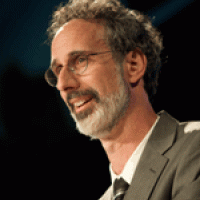Water for the Next 100 Years
As part of the Woodrow Wilson Center's tribute to William Ruckelshaus, two-time U.S. Environmental Protection Agency (EPA) administrator, water experts gathered at the University of Washington in Seattle on February 28, 2006, to discuss the challenge of providing safe water to meet both human and ecosystem needs. A dinner discussion at the University of Washington Faculty Club following the presentation focused on Washington state's water problems and opportunities. The consensus was clear: the task is formidable, especially given the effects of climate change, archaic legal structures, and often-competing interests for limited supply. Yet the experts agreed that we have the technological tools and creative solutions to address these problems.
Jay Manning, director of the Washington Department of Ecology, shed light on the particularly challenging task of allocating water in Washington (and many other Western states) governed by the 150-year-old law of prior appropriation—also known as the "Colorado Doctrine"—which states that the first user of water acquires the right to its future use, thus pitting users against each other. "This system might have worked to attract folks from the East Coast out to California during the gold rush," Manning said. "It does not work very well when we're trying to make decisions about who gets water for what, in what amount, when you have very compelling demands to leave the water in the stream."
In Washington state, this legal doctrine leaves little opportunity for creative ways to balance the needs of agriculture, industry, ecosystems, and the community. The rights of Native Americans must also be considered: "Native American tribes were here before the Europeans showed up and imposed their legal system," Manning said. "And, in fact, the court system in this country has recognized that those tribes have legal water rights." Posing further challenges, in 1971, the Washington State Legislature formally recognized the "instream" values of water—fish, wildlife, and activities that require instream water—by passing the Water Resources Act, which set minimum flow requirements for certain instream priorities. However, the statute does not allow for these priorities to interfere with "senior water rights" that existed prior to the establishment of the minimum flow requirements.
Water: A God-Given right?
Water allocation is arguably one of the most controversial issues of our lifetime. Water decision-makers are trapped in an impassioned debate over whether to give rights to ecosystems or continue to pass them down through families. William Ruckelshaus realized this while talking to farmers and ranchers in California about the Endangered Species Act and salmon recovery efforts. One rancher told him: "My water rights came from my father; and my father's water rights came from my grandfather; and my grandfather's water rights came from God." But Peter Gleick, director of the Pacific Institute, said: "Water rights were given by governments in the interest of meeting certain human needs. If God gave water rights to anyone, it was the fish."
According to Ruckelshaus, effective policies and technological capacity are not the only concerns in wildlife recovery: "How do we generate the public support to establish the policies and apply the technologies and appropriate the funds to help these fish recover?" Jerry Cormick, a principal of the CSE Group, stressed the importance of collaboration and participatory decision-making, and "creating an opportunity for those who have to live with the decision, and implement the decision, to be a part of the decision…It's their life; it's their livelihoods; it's whether they stay in business; it's whether their kids inherit the farm; it's whether their local town stays economically viable."
Climate Change: Expect Surprises
The debate over how to address the potential effects of climate change on water supply illustrates the importance of public opinion in policymaking. "Expect change," warned Anne Steinemann, professor of civil and environmental engineering and public affairs, and director of the Water Center at the University of Washington. "Expect surprises. Changes may not necessarily be gradual—a nice linear increase. Things may happen dramatically. Also, expect more frequent and severe hydrologic events—droughts and floods." But the message is not all gloom and doom. Steinemann described the potential of climate forecasting—a technique used to predict changes in temperature and precipitation up to a year in advance—that holds enormous potential for improving policymaking and saving millions of dollars. She also provided practical recommendations:
- Improve flexibility to adapt to changes in water laws, usage, and markets;
- Deepen understanding of the benefits and costs of taking action in advance as opposed to managing the crisis later;
- Improve communication between climate scientists and policymakers in both directions;
- Improve demand management; and
- Strengthen the state's role in water management and climate research.
"We cannot wait for the federal government to take the lead," she said.
The Global Crisis
"It's the 21st century and we have a communications revolution, and we have an information revolution. And yet there are a billion people without access to clean drinking water. There are 2.4 or 2.5 or 2.6 billion people without access to adequate sanitation services," Gleick reminded the audience. Addressing the global water and sanitation crisis, he said, requires reprioritizing development efforts, including revising our understanding of water systems.
In the past, decision-makers focused on a "hard path" for water and sanitation that encouraged large-scale infrastructure, but this approach is now considered insufficient for meeting current human and ecosystem needs. Gleick supports a "soft path" for water, which does not discount the importance of centralized infrastructure, but focuses on improving productivity rather than pursuing endless supply. The soft path emphasizes water-user participation, efficient technology, human capital, and decentralized provision. "It's no longer enough to ask ‘Where is the next pipeline that needs to be built?…Where is the next aquifer that needs to be tapped?'" he said.
Complementing Gleick's presentation, William Reilly, founding partner of Aqua International Partners and former U.S. EPA administrator, addressed the private sector's role. "The chosen vehicle for injecting private capital to improve these public systems was privatization," he said. "I think in many parts of the world [privatization] has gotten a bad reputation—in some cases deservedly, in some cases not." Reilly asserted private capital can still help improve public systems. "If you look at the private sector's role in all of this… I don't think it's so much anymore [involved] in fostering or participating in privatizations. It is, however, [involved] in developing techniques, vehicles, transmission, [and] facilities for improving the technology of water and improving water delivery."
Reilly is optimistic about the future: "There are technologies; there are new partnerships; there are new institutions that are growing up to address severe water problems," he said. Addressing the challenges "will take the combined efforts of many of these institutions at every level, both public and private." Paraphrasing Albert Einstein, Cormick, too, stressed the importance of new thinking on water: "The world we have created today as a result of our thinking thus far has created problems that cannot be solved by thinking the way we thought when we created them."
Drafted by Charlotte Youngblood.
Speakers

Professor and Associate Dean, George V. Voinovich School of Leadership and Public Affairs, Ohio University; Associate Senior Fellow, Environment of Peace Initiative, Stockholm International Peace Research Institute

Hosted By

Environmental Change and Security Program
The Environmental Change and Security Program (ECSP) explores the connections between environmental change, health, and population dynamics and their links to conflict, human insecurity, and foreign policy. Read more
